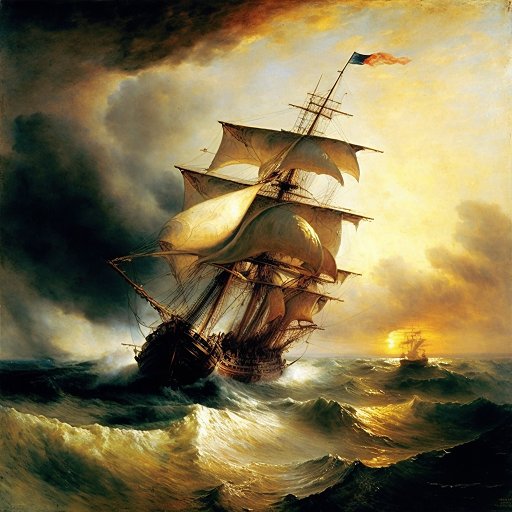The Persian Gulf, a region of immense historical and geopolitical significance, has witnessed the ebb and flow of countless civilizations and nations over the centuries. While modern associations may not readily link Portugal to the Persian Gulf, the historical narrative reveals an intriguing and often overlooked chapter in the region’s history.
Long before the major European powers of the 19th and 20th centuries ventured into this strategic waterway, it was the Portuguese who established their presence through a series of audacious expeditions and military operations. This early Portuguese involvement in the Persian Gulf not only laid the foundation for subsequent European influence but also left an indelible mark on the course of regional history. Exploring this fascinating history illuminates the complex tapestry of global interactions in the early modern era and provides insights into Portugal’s role as a pioneering maritime power.
To comprehensively explore the historical factors that shaped the Persian Gulf, particularly during the seventeenth century, it is essential to first provide a concise overview of the pivotal events of the preceding century that laid the foundation for European involvement. In this regard, the rise of Portuguese influence emerges as a dominant theme.
The primary objective of Portuguese ventures into the region was to establish an unrivalled monopoly over the trade routes facilitating the passage of precious Eastern commodities, including spices, as they traversed the Persian Gulf en route to markets in Asia and Europe. This endeavour extended beyond mere commercial interests, encompassing the strategic acquisition of key islands and ports encircling the Persian Gulf and the assertion of dominance over maritime navigation within the vast expanse of the Indian Ocean.
Portuguese Maritime Aspirations and Naval Exploits
The initial strides towards the realisation of these ambitious objectives were marked by the dispatch of a formidable naval expedition in 1507, under the command of renowned Portuguese naval commander Alfonso de Albuquerque, who stands as one of the most illustrious figures in the age of early European naval Exploration.
Alfonso de Albuquerque
Born in 1453, his impact on world history was significant. Albuquerque’s name is synonymous with Portugal’s maritime expansion and their quest for dominance in the Indian Ocean. As a brilliant strategist, his military campaigns and astute diplomacy were instrumental in establishing a formidable Portuguese presence in the East. His crowning achievement was the capture of Goa in 1510, which served as the linchpin for Portugal’s thriving Indian empire. Albuquerque’s innovative naval tactics, administrative reforms, and unwavering commitment to Portugal’s interests earned him a place among the most celebrated maritime commanders of his era, leaving a lasting legacy in the annals of world exploration and empire-building.
This 1507 expedition to the Persian Gulf yielded significant conquests, mainly in what is modern day Oman, including the strategic territories of Ra’s al-Hadd, Muscat (Masqat), Qalhat, Sohar (Suhar), and Khor Fakkan.
However, it is imperative to note that Albuquerque harboured grander ambitions that transcended mere territorial acquisitions. His vision entailed the establishment of a formidable Eastern empire, fortified by impregnable citadels at Aden, Diu, Hormuz (Hurmuz), and Goa.

1507 Treaty Of Hormuz
As a crucial step towards realising this vision, September 1507 witnessed the coercive signing of a treaty with the King Sayf ud-Din Aba Nasr Shah of Hormuz. This treaty stipulated the restoration of the King to his former throne, from which he had been forcibly ousted by Portuguese military might. In return, the King would pledge vassalage to the King of Portugal, committing to annual tributes and ceding an expanse of land outside the city, deemed suitable for the construction of a fortress and trading establishment.
The Ebb and Flow of Portuguese Dominion
While Portuguese influence initially surged, it ultimately waned as their dominion faced challenges. A subsequent expedition to Hormuz in 1515 succeeded in reinstating Portuguese control over the island, but collaborative agreements with Shah Isma’il I of Persia highlighted Portuguese vulnerabilities. This alliance, though involving the King of Hormuz ruling under the Portuguese monarch’s aegis and the provision of Portuguese shipping to the Persians, also entailed joint incursions into Bahrain and al-Qatif (eastern KSA) and participation in a military alliance against the Ottoman Turks. Regrettably, these collaborative endeavours were marred by Portuguese avarice, inciting a series of indigenous uprisings.
1522 Hormuz Uprising
In 1522, instigated by the King of Hormuz’s resentment towards Portuguese favouritism for Persia, synchronised revolts erupted in Hormuz, Bahrain, Muscat, and Sohar. In Bahrain, the Portuguese governor met his demise, and the native population, led by Husayn bin Sa‘id, expelled the garrison. Following a brief interlude of self-rule, Husayn reconciled with the former rulers and acquiesced to their authority.
In Hormuz, the quelled revolt culminated in the city’s conflagration, propelling the King to flee to the nearby island of Qishm in modern day Iran, where he met his tragic demise. His thirteen-year-old son, Muhammad Shah II, the inheritor of a tumultuous legacy, inked a fresh treaty with the Portuguese overlords on July 15, 1523. Under its terms, he assented to the provision of secure accommodations for Portuguese merchants and granted unrestricted navigation rights to Hormuz ships.
Simultaneously, a stringent prohibition was imposed upon the locals concerning the bearing of arms, with all arsenal stockpiles being consigned to the custody of the Portuguese fortress. This treaty effectively redefined the dynamics of governance, allowing the King nominal control over internal affairs while firmly situating him within the sphere of Portuguese suzerainty.
The history of Portugal’s ascendancy in Persian Gulf history provides invaluable insights into the intricate interplay of global interactions during the early modern era. It serves as a testament to the enduring legacy of figures like Alfonso de Albuquerque and highlights the enduring impact of these historical events on the modern geopolitics of the region. This chapter in history underscores the significance of understanding the past to better comprehend the contemporary landscape of the Persian Gulf and the lasting consequences of early European maritime exploration and empire-building.
